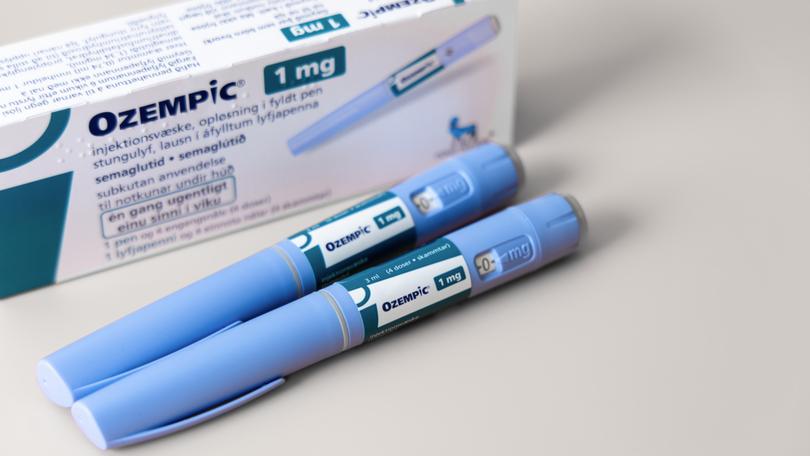Government to ban Ozempic and Mounjaro weight loss replicas over dangers, affecting 20,000 Australians
The Government has announced a major change that will ban popular weight loss products over ‘dangers’ that could affect thousands.

The Government will ban popular replica weight loss products used by 20,000 Australians, saying the “risk of not acting is far greater” than the benefits.
The changes aim to eliminate the use of unregulated and potentially unsafe products that mimic TGA-approved products like Ozempic and Mounjaro.
Compounded glucagon-like peptide-1 receptor agonists (GLP-1RA) products are tailored for individual patients with specific clinical needs and are not subject to the rigorous safety regulations that govern approved medicines.
Sign up to The Nightly's newsletters.
Get the first look at the digital newspaper, curated daily stories and breaking headlines delivered to your inbox.
By continuing you agree to our Terms and Privacy Policy.Unlike TGA-approved products, pharmacy-compounded GLP-1RAs are not clinically evaluated by the independent regulator for safety, quality, or efficacy.
The lack of regulation has raised significant concerns about their commercial-like scale and quality standards.
In response to these growing concerns, the government, following advice from the Therapeutic Goods Administration and consultations with stakeholders, is removing GLP-1RAs from the pharmacy compounding exemption.
Announcing the ban on Wednesday, Minister for Health Mark Butler said: “Australians should be able to have faith in the medications they use, including compounded medicines. This is a priority for the Government.”
“We recognise there is a valid place for compounding in certain circumstances,” Mr Butler said
“To keep Australians safe, new regulations will remove GLP-1RA, such as those being misrepresented and sold as replica Ozempic or Mounjaro, from the pharmacy compounding exemptions.
Mr Butler confirmed the change will not affect compounded medicines other than GLP-1 receptors.
“While I understand that this action may concern some people, the risk of not acting is far greater,” Mr Butler said.
“You only have to look to the recent reports of individuals impacted by large-scale compounding to realise the dangers posed.
“This action will protect Australians from harm and save lives.”
This action affects at least 20,000 Australian patients, primarily using these products for weight loss management.
The move aligns with international actions, such as the U.S. Food and Drug Administration’s (FDA) warnings about the safety risks of certain compounded products.
The broad support from key health sector bodies, including the Royal Australian College of General Practitioners, the Medical Board of Australia, the Pharmacy Board of Australia, Diabetes Australia, the Eating Disorders Alliance of Australia, and all state and territory health departments, further reinforces the necessity of this regulation.
The regulation will take effect from 1 October 2024, allowing patients ample time to consult with their doctors and transition to safer, regulated alternatives.
Professor Robyn Langham AM, Chief Medical Adviser for the TGA, supported the decision saying the ban was “the right action to take.”
“The TGA will work with key medical, pharmacy and consumer stakeholders to support patients and their practitioners to navigate the change, and where appropriate help with guidance in finding alternative and safe medicines,” Mr Langham said.
